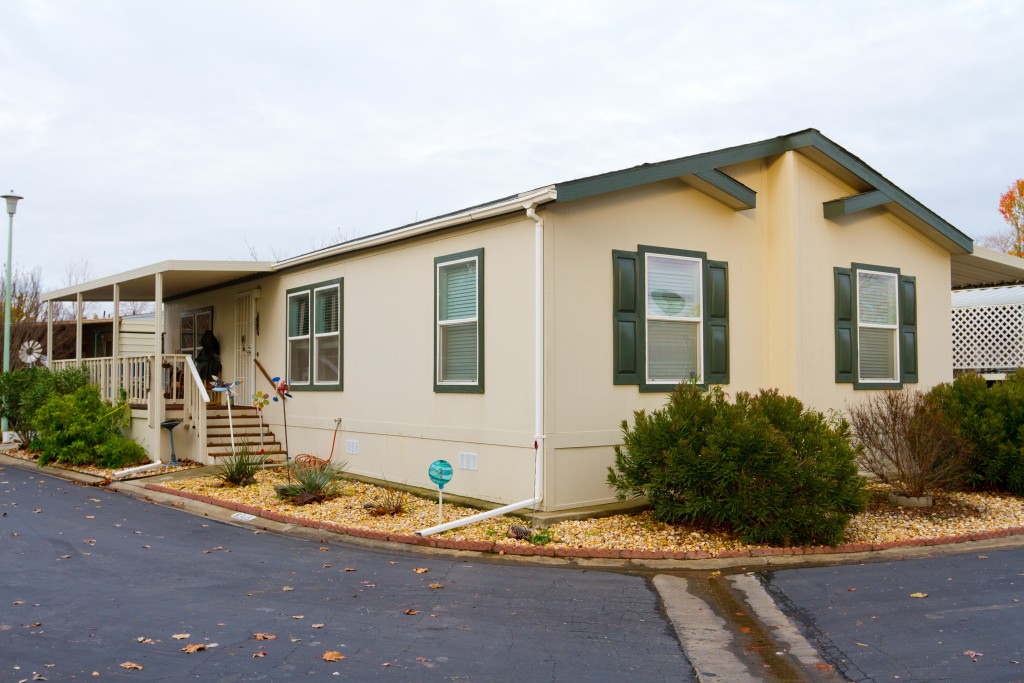Disclaimer: This website provides health information for educational purposes only and is not a substitute for professional medical advice, diagnosis, or treatment. Always seek the guidance of a qualified healthcare provider with any questions you may have.
Manufactured homes are increasing in popularity, thanks to mobile parks that offer convenient facilities and features that make the assembly of homes more like a community than trailers parked together. Learn why manufactured homes are overhauling the traditional American dream.
What Is a Manufactured Home?
By design, a manufactured home is a house not attached to the land and can move from place to place. By function, it is like any house where you can sleep, eat, and do most activities you do in a home, such as watch TV. Manufactured homes also go by the name mobile homes or trailers—although they are known to have better quality than mobile homes constructed before 1976. They may be found in regular, mixed-use recreational parks, purpose-built parks, or the homeowner’s land.
Manufactured homes are built offsite, which may make them smaller than regular, onsite-built homes. Mobile homes are not assembled onsite or grounded permanently. They’re attached to a chassis, which allows you to move them on wheels to your location. They come in one unit (section), or several units that are transported separately on their own chassis when the homeowner needs to move. Multi-section manufactured homes are rejoined in the site.
Manufactured homes have come a long way from the mobile houses we know in years past. Today, they blend well with the neighborhoods they settle in, and offer most of the amenities found in onsite-built single-family homes—including garages and picket fences!
The Cost of Manufactured Homes
If you’re single or live with only a spouse or partner, a manufactured home may not hurt your finances. You don’t need as much living space as a family with children, so you don’t have to build a big house. Since land isn’t part of your home purchase, it’s not part of your costs—technically, unless you’re putting it up on land that you’re leasing. Mobile park rentals are negligible, so you don’t need to worry much about it.
Manufactured homes are faster to complete than a regular house because they’re built in a factory, typically as a single section, making the cost lower than traditional home developments. A manufactured house costs $50.42 per square foot in 2017, based on the latest data from the U.S. Census Bureau. So, a small manufactured home of 1,000 sq. ft. (excluding the land on which it stands) would only cost more than $50,000. With $150,000, for instance, you can have a 2,000-square foot double-section single-family home in a neighborhood you like, with all the amenities you want.
If you don’t have your own land, mobile park rental is not that expensive, depending on where you are and what services you sign up for. The price can range from as low as $140 in Indiana to as high as $800 in Delaware. Basic inclusion is trash pickup, but some parks offer sewer, water, gas, lawn care, cable service, handyman service, snow removal, and amenities like a pool, boat dock, and clubhouse.
Of course, there are other costs you may have to deal with, such as insurance and home maintenance (which comes free in apartments and condos), land and property taxes, utilities/electricity, and the cost of transporting your home to the site. If you’re purchasing the home on loan, it will have a higher interest rate and shorter repayment term than traditional site-built houses. ;
Are Manufactured Homes a Good Investment?

In terms of initial cost, a manufactured home is a good “investment” in time and money. It’s fast and affordable. Since you can have your house transported to another city or town, it’s also an investment in mobile living and travel opportunities.
The value of mobile homes, however, depreciates in time, and selling them for a profit (or at cost) isn’t exactly feasible. If you’re using financing to purchase a manufactured home, your loan balance might already be higher than the value of the house itself by the time you sell.
If your mobile home is located permanently in a park and hooked to utilities and other services, it will be hard to move. As such, it will be hard to sell, as well, as your target potential buyers will be limited to people who want to live in the same city or park you’re in.
If you’re selling your manufactured home in a park, you don’t really need a lawyer for conveyancing procedures because you’re just selling the property and not the lot. If your home is on your land, though, some states like New Jersey consider the manufactured home real estate, covered by real estate regulations and processes. A licensed motor vehicle dealer handles the initial sale of the home, and a real estate broker takes care of the resale. You may or may not hire a lawyer for this.
Manufactured homes are more flexible and affordable than traditional site-built houses, but they can have almost the same amenities as conventional homes. They are better investments than rented apartments or homes, but can’t be considered an investment-for-profit if you plan to sell. Still, manufactured homes have a lot of potential to provide you with the stuff American dreams are made of.




